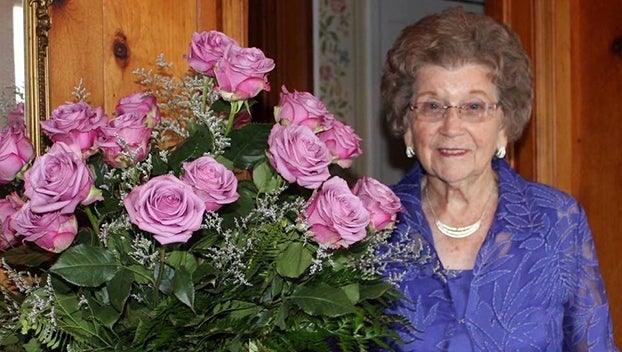The chinquapins was a tasty nut in thorny burr
Published 12:00 am Wednesday, October 21, 2015
A couple of years ago I wrote about the “chinquapin” (chinquapin) trees, the quince trees and the loquat trees? And, in that column I asked “where are these delectable trees now?”
Surely all of you who are southern natives are familiar with these edibles. I don’t see any of them anymore. I used to see them-and eat them-all the time when I was growing up. Perhaps you did, too.
That chinquapin was a tasty little nut enclosed in a thorny burr and ripened in the fall. A member of the chestnut family, a knife was needed to dig it out. Many roasted them or they could be eaten right out of their shells.
I learned that cutting back our forests was one of the main reasons they seem to have disappeared.
Wild animals also feasted on them, especially fox and squirrels.
If you want to order some chinquapin plants, I found some websites where you can order them. The good thing about growing these plants is the fact they do real well in southern Alabama and northwest Florida.
Loquats were also very popular in my younger days. Unlike a kumquat (cumquat), they are very sweet and juicy. You could tell they were ripe when they turned orange in color. Because of their sweet taste you found it somewhat difficult to stop eating so many at one time, kind of like trying to lay down peanuts.
Used also for jellies and special desserts, it was quite common to find these trees growing on your home yards and lawns. One of the problems growing them was keeping the birds away. If you had a loquat tree in your yard you surely would need a scarecrow.
Now, the quince was a peculiar fruit. It grew on a sizable tree and it had a tough, somewhat tart taste. Some classmates would bring them to school but I never could understand how they could tolerate such a “bitter” taste. By the same token many folks used them in making jelly. And, this was also difficult to understand how this fruit could blend into such sweet jelly.
Well, like so many other things of the past, these foods are practically obsolete today. However, I am thinking about ordering some of those chinkapin bushes just for old time’s sakes.
I almost forgot about the mullberry trees and the Chinaberry trees. They, too, are not seen very much today like they were years ago. Those sweet mullberries made good jelly too. And, how many of you ever used Chinaberry “bullets” for your popguns.
Speaking of tasty eats, you will find an assortment of foods out of this world at Williams Station Day here Saturday.
If you like funnel cakes, take a stroll to all the food concessions and look over an assortment of flavors designed to whet your “sweet tooth.” Count the many varieties of sandwiches and pick up a bottle of freshly ground cane juice at the grinding mill.
Save room for one of carnival favorites-the “blooming onion.” This delicacy is big enough to feed an entire family.
In addition to all the god food sit back and enjoy a wide variety of music played by local and area bands.
If that is not enough, gaze at all the unique crafts on display.
Yes you will find it all at this day-long event, where patrons from all around the Atmore area will gather.
Now, taking a look at some local and area news from 1966; George Scoggin, the manager of Thompson’s fine Clothing, was elected president of the Atmore Jaycees.
W.M. Horton retired as principal of Davisville School and moved back to his former Union, Mississippi home. His wife, Bernice, also an educator here, retired that same year.
Andalusia edged out our Little League All-Stars in a district tournament held here. Members of that team were Randy Hall, John Bachelor, Clint Smith, Curt Donaldson, Frankie Dailey, Gilbert Gorum, Larry Smith, Freddie Troutman, Mike Garrard, Don Ward, Julian Thomas, Jimbo Walker, Damon Bell and Charles Wood. John Bachelor Sr. and Heron Hall were the coaches.
Former Escambia County High School basketball coach Frank Cannon, took a job as physical education instructor at Yancey State (now Faulkner State Community College).
Next week, we will take a look at more news from years gone by.
“…..yes, it always whispers to me…those days of long ago….”



